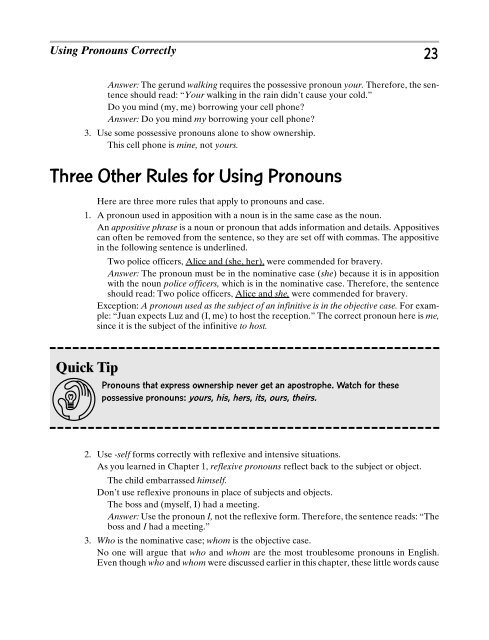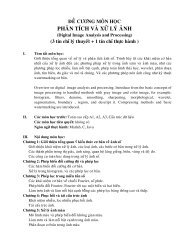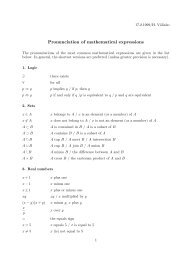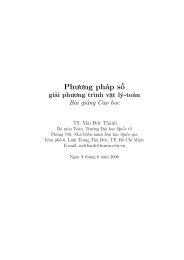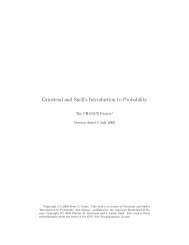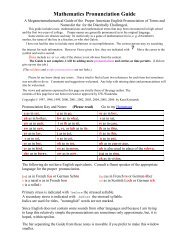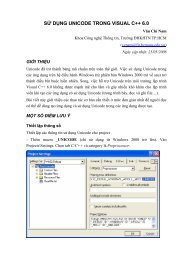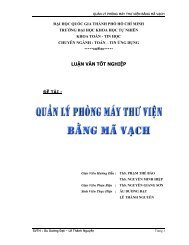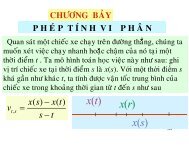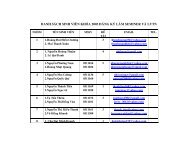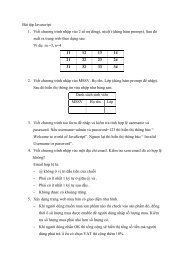EN - English Grammar for the Utterly Confused.pdf
EN - English Grammar for the Utterly Confused.pdf
EN - English Grammar for the Utterly Confused.pdf
- No tags were found...
Create successful ePaper yourself
Turn your PDF publications into a flip-book with our unique Google optimized e-Paper software.
Using Pronouns Correctly23Answer: The gerund walking requires <strong>the</strong> possessive pronoun your. There<strong>for</strong>e, <strong>the</strong> sentenceshould read: “Your walking in <strong>the</strong> rain didn’t cause your cold.”Do you mind (my, me) borrowing your cell phone?Answer: Do you mind my borrowing your cell phone?3. Use some possessive pronouns alone to show ownership.This cell phone is mine, not yours.Three O<strong>the</strong>r Rules <strong>for</strong> Using PronounsHere are three more rules that apply to pronouns and case.1. A pronoun used in apposition with a noun is in <strong>the</strong> same case as <strong>the</strong> noun.An appositive phrase is a noun or pronoun that adds in<strong>for</strong>mation and details. Appositivescan often be removed from <strong>the</strong> sentence, so <strong>the</strong>y are set off with commas. The appositivein <strong>the</strong> following sentence is underlined.Two police officers, Alice and (she, her), were commended <strong>for</strong> bravery.Answer: The pronoun must be in <strong>the</strong> nominative case (she) because it is in appositionwith <strong>the</strong> noun police officers, which is in <strong>the</strong> nominative case. There<strong>for</strong>e, <strong>the</strong> sentenceshould read: Two police officers, Alice and she, were commended <strong>for</strong> bravery.Exception: A pronoun used as <strong>the</strong> subject of an infinitive is in <strong>the</strong> objective case. For example:“Juan expects Luz and (I, me) to host <strong>the</strong> reception.” The correct pronoun here is me,since it is <strong>the</strong> subject of <strong>the</strong> infinitive to host.Quick TipPronouns that express ownership never get an apostrophe. Watch <strong>for</strong> <strong>the</strong>sepossessive pronouns: yours, his, hers, its, ours, <strong>the</strong>irs.2. Use -self <strong>for</strong>ms correctly with reflexive and intensive situations.As you learned in Chapter 1, reflexive pronouns reflect back to <strong>the</strong> subject or object.The child embarrassed himself.Don’t use reflexive pronouns in place of subjects and objects.The boss and (myself, I) had a meeting.Answer: Use <strong>the</strong> pronoun I, not <strong>the</strong> reflexive <strong>for</strong>m. There<strong>for</strong>e, <strong>the</strong> sentence reads: “Theboss and I had a meeting.”3. Who is <strong>the</strong> nominative case; whom is <strong>the</strong> objective case.No one will argue that who and whom are <strong>the</strong> most troublesome pronouns in <strong>English</strong>.Even though who and whom were discussed earlier in this chapter, <strong>the</strong>se little words cause


